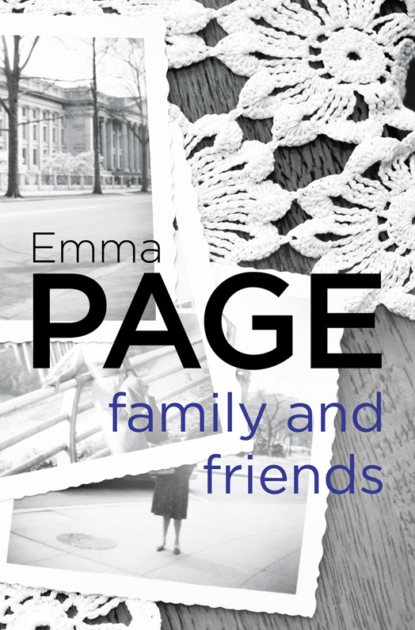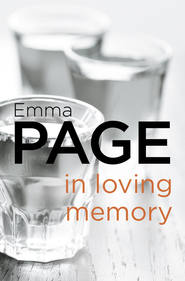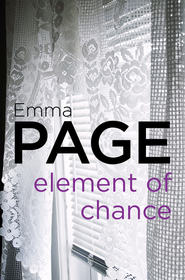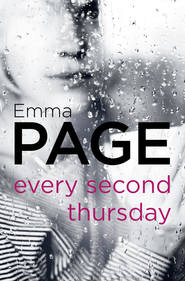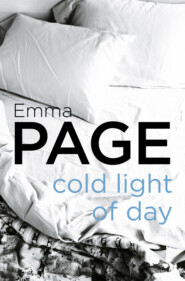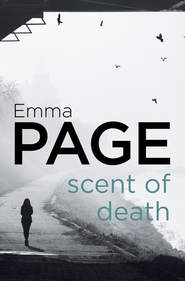По всем вопросам обращайтесь на: info@litportal.ru
(©) 2003-2024.
✖
Family and Friends
Автор
Год написания книги
2018
Настройки чтения
Размер шрифта
Высота строк
Поля
In four minutes’ flat she had put paid to most of the top layer. She raised her head and glanced at the clock on the mantelshelf. Not quite half past six. No sign of Owen yet. Surely now she had time for just one quick sip?
Yes! Of course she had! She stuffed the box back under the bed and tried to contort herself into a position in which she could wrench open the door of the bedside cabinet. She groaned and tugged but it was impossible; she was compelled at last actually to flop out from between the sheets on to the carpet and in a cross-legged posture she sank a tot of neat brandy. By the time she had drained her glass for the second time she had ceased to bother about Owen’s car.
A terrible sense of sorrow and the harsh injustice of life welled up inside her. Some sentinel fragment of her brain insisted that it was never meant to be like this–how had Daddy’s little golden-haired princess come to be slouched on the floor of Daddy and Mummy’s bedroom, fat and ailing and unlovely, a little drunk and more than a little nauseated?
She silenced the disturbing voice in the only way she knew–she filled her glass again and lifted it to her lips. But she couldn’t finish the drink. After a few sips she began to feel so unwell that fright restored her temporarily to sobriety. She levered herself up and went over to the basin, where she emptied the glass into the sink and ran a tap to wash away the traces.
She splashed her face with cold water and dabbed it partly dry. Ah! That was better! She got back across the room and pushed the brandy bottle into a corner of the cabinet.
Twenty minutes to seven and Owen still not home. Brandy-inspired anger began to mount in her brain. I could die here all alone, she thought with savage resentment, and he wouldn’t bat an eyelid. Resentment suddenly gave way to near-panic as this habitual expression of self-pity all at once translated itself into a terrifying possibility. I could actually die! The words leapt before her eyes in characters of fire. I am ill! Desperately ill! It isn’t just a game I’ve been playing.
Up to this moment she’d always cherished the illusion that she could stop whenever she chose, pull herself together, like a child saying, ‘I’m going to be good now, for ever and ever,’ as if the debilitating years could be dissolved in a single flash of resolution and she could wake up next morning slender and beautiful, radiantly healthy and gloriously young again.
For one piercing moment she saw the skeleton face of reality rise up from the pit. She shut her eyes tight, forcing the image away, down, out of perception and consciousness. She slid back, lying full-length on the satin spread, and dropped at once into a doze that lasted barely a minute.
When she opened her eyes again she had the impression that she had been asleep for a long time. The brandy had resumed its interrupted work; she felt relaxed and dulled. The terror had vanished, leaving behind only a hazy notion that she ought to ring her doctor. She raised herself up and went with a kind of floating motion into the dressing room that linked–or, more accurately, separated–her room from that of her husband’s.
The phone stood on a small table at the other side of the room. She wove her way towards it, sat down and dialled the number. The engaged signal sounded in her ear. Not at all put out, she replaced the receiver and leaned back in her chair, ready to try again in a couple of minutes. It never occurred to her to wonder whether fifteen minutes before the start of evening surgery might not be an ideal time to phone a busy doctor.
Owen Yorke turned his large black saloon car into the narrow road–little more than a lane, really–that led to the secluded house where he lived with Zena. He had never been able to think of The Sycamores as home although he had inhabited it for half of his fifty years.
His speed dropped until he was barely keeping the car in motion. He hadn’t consciously slackened the pressure of his foot on the accelerator, it was just that he was finding it more and more difficult every evening to propel himself towards the house at all.
A couple of weeks back his eye had fallen on a paragraph in the paper, some man who’d been missing from home for more than a month, a prosperous professional man with a family life that seemed ordinary enough; he’d turned up, unkempt, half-starving, in a bleak little mining town in the north, hundreds of miles away from his comfortable base. Discovered by a policeman late at night, sitting all alone on a stone bench outside the post office in the middle of a snowstorm. He hadn’t been able to offer any explanation.
The item had stuck in Owen’s mind. It was the kind of trivial news story which didn’t merit a follow-up. One never knew how it ended or indeed, why it had begun. The thought of that man would spring into Owen’s brain quite often now as he opened the door of his car in the evenings and a prickle of fear was beginning to accompany the thought.
All his life he had relied on the exercise of his will to channel his energies and discipline his emotions and desires so that the whole of his conscious effort kept him unswervingly directed towards the goal he saw so clearly.
Status, wealth, respectability; he could put not a pinpoint between them in order of importance. He had never for a single moment questioned the validity of his ambitions and he still wasn’t questioning them.
What troubled him now, what caused the tingle of apprehension to run across his mind in the middle of everyday routine activities was a horrid suspicion that his will was no longer absolute master of his personality. He felt as if he had for fifty years been damming behind a massive barrier deep and powerful forces of whose existence he had been totally unaware.
And now the barrier was beginning to crack; he sensed the underground currents seeping through. As he drove out of the car park at the end of each busy and purposeful day he would be seized for an instant by a nightmare panic that the whole structure of his identity might suddenly and uncontrollably topple, that he might vanish from the familiar environs of Milbourne, materializing inexplicably weeks later on a bench in an alien blizzard.
The long driveway of The Sycamores appeared before him. The car made its way over the gravel at little more than walking pace. I must take some decisive step, he thought, summoning to his aid his ancient ally of resolution. Two courses lay before him. He could either plough on along his chosen path, crushing down the minutest sign of internal conflict–or he could stand back and let the defences crumble, look calmly and courageously at what was left when the torrents subsided, begin to build all over again from scratch an edifice he could not at this moment even begin to imagine.
He was astonished to find, now that he actually dared to examine the notion of violent upheaval, that it was exhilaration and not terror that ran through him. He got out of the car and stood looking up at the house. Then he shook away his train of thought. Some other time, he told himself, when there is peace and leisure, I’ll work it all out another day. He gave his determined attention to the matter of the rest of the evening.
The car–no need to put it away in the garage, he’d be running up to the Independents’ again later on. He’d called in at the club once already after leaving the office, looking for a member with whom he had business dealings. But the man wasn’t there, wouldn’t be in for an hour or two.
He became aware that it was bitingly cold out here in the driveway but he still lingered under the arching trees. The house was well named; the sycamores had multiplied themselves in the hundred years since the grounds had first been laid out, great spreading branches reaching in places to a height of sixty or eighty feet.
He took a step or two backwards and stared up at the grey walls built of stone from a local quarry, the long windows with light escaping from between heavy curtains. Zena was never one to go round economically switching off lamps. He pictured her up there in the best bedroom, lying back against the embroidered pillows, looking up at the ceiling, waiting for him.
What a brooding, gloomy-looking place it was–and how imposing it had seemed to him when he had been despatched here on some errand from the shop in his apprentice days. He and Zena had begun their married life in a modern bungalow; they had moved to The Sycamores a year or two after Ralph Underwood’s death, when the war was over and it became possible once more to think of heating and running a place of this size.
Something more cheerful, he thought suddenly. A new house perhaps–or if an old one, then something from a more elegant time, Georgian or Queen Anne. And a more open kind of garden without all these overpowering trees. He didn’t allow his mind to circle round the question of who was going to share the Georgian mansion with him or if indeed he was going to share it with anyone at all.
A sharp gust of wind blew chilly air against his cheeks. I’d better get a move on if I don’t want to stand out here all night, he told himself. The notion brought with it a nasty reminder of the post-office bench under the whirling snow, sending him rapidly up the steps and in through the front door, closing it behind him with a momentary sense of relief, a return to normality.
He hung up his coat, stamped his feet to restore the circulation. He could do with a holiday, that was all it was; a few days away somewhere pleasant and he’d be as right as rain. Something about the New Year, for all its frantic jollity, that inspired a feeling of depression and futility; he’d seen its effects in other men. Almost cheerful again, he mounted the stairs, already fixing a smile across his face. Zena was probably feeling much better now after her rest. They had spent last evening–and a considerable stretch of the early morning–at a dinner-dance in the largest hotel in Milbourne. Zena had overdone things a trifle, eating and drinking rather more than was strictly good for her. But it was only natural, really; she was after all entitled to deal with the midwinter glooms in her own way.
He flung open the bedroom door and levelled his smile at the bed; his face had by now assumed a certain masklike quality which might have appeared quite startling if there had been anyone to see it.
The bed was empty, the covers flung back in a disorderly heap. Through the open door of the dressing room he heard Zena’s voice, high-pitched, argumentative. His smile abandoned him but he kept on, round the foot of the bed, through the door, pausing on the threshold.
Zena was sitting hunched in a chair, talking fiercely into the phone; she was wrapped in a fleecy dressing gown of pale blue wool. Her eyes flicked over him without a sign of recognition.
‘I’m back,’ he said. She made no reply. He felt disembodied, unreal, a figment of his own imagination–the real man perhaps even now looking up from a stone seat into the questioning face of a policeman.
He turned and caught sight of his face, pale and ghostly, dark hollows where there should have been eyes, in the mirror on the opposite wall. He dropped his gaze, appalled at the sight of such blank futility, bafflingly at odds with his habitual image of himself as a jovial, successful man.
He saw the bright flash of a pair of scissors lying on the shelf below the mirror; he was seized suddenly with a wild and powerful impulse to stride forward and pick them up, raise them aloft and drive them down with force into that flaccid flesh under the pale blue wool.
He closed his eyes in terror that he might actually take a step forward; he felt the barriers begin to slip and crumble in his mind; he exerted all his strength and beat back at the invading tide. It began to recede, it slipped away, a little more and it was gone. He drew a long sighing breath and opened his eyes. Quite himself again now. Stupid to stay up so late. Not enough sleep, that was his trouble. But he kept his eyes well away from the steely brilliance of the scissors.
‘I’ll just have a quick wash,’ he said lightly. Zena gave no indication that she had heard. He went back into the bedroom and through the bathroom door. As he ran the taps he became aware of a weight in his jacket pocket. Ah–the tonic. Zena would be wanting that. He turned off the taps and stood looking down at the bottle in its neat white wrapping.
‘If you could just say exactly what it is that’s the matter with you, Mrs Yorke,’ the receptionist said yet again, striving for the right tone of professional firmness. New to the job, acting as a temporary relief, the regular girl being away with flu. ‘Then I’ll slip in and have a word with Dr Gethin.’
‘You’re not by any chance a qualified doctor?’ Zena threw in acidly. ‘No? Then I can’t see how describing my symptoms to you can be of the slightest use.’ Quite enjoying herself now; nothing she found more enlivening than a good brisk exchange. She felt energetic, free from the effects of the brandy.
‘You go along and tell Dr Gethin I want to speak to him. I’m very ill, I suffer from diabetes. Dr Gethin knows all about my case, he knows how serious it is, he’s been my doctor ever since I was born. He’ll want to come out and see me.’
She doesn’t sound very ill, the girl thought uncertainly, she sounds full of life. But one never knew—
‘Oh, very well, then,’ she said abruptly as Mrs Yorke embarked on a fresh onslaught. ‘Hold the line, please.’ She left her desk and went across the passage to Dr Gethin’s door.
‘I’m terribly sorry to disturb you.’ She put her face a few apologetic inches into the room. ‘But it’s a Mrs Yorke. She insists on speaking to you. I can’t make her see reason.’
Gethin looked up from the paperwork he was trying to deal with before the first wave of patients engulfed him.
‘Mrs Yorke?’ He took off his reading-glasses and rubbed his eyes. He looked unutterably weary–and the rest of the evening still to be got through. ‘If you can make Zena Yorke see reason, you’ll be the first person who’s ever succeeded.’ He let out an irritable breath. ‘New Year’s Day. I have a very good notion what’s wrong with her. Overindulgence. Simply won’t make any attempt to diet.’
He sighed again, loudly. Disease and natural disasters, he thought–with the accumulated anger of a lifetime spent in combating the follies of mankind–the only things we ought to have to battle with; all the rest is wished upon us by ourselves or our fellows.
‘What shall I tell her?’ the girl asked timidly. ‘She’s blocking the phone for other calls.’
‘Tell her to go to hell.’ He saw the girl’s anxious look. ‘No, wait a minute.’ He’d have to do something about the woman. She was after all the wife of Owen Yorke, shortly to be made president of Gethin’s club. And Gethin had served in the first war with Owen’s father, they’d lied about their ages, both of them, been through two years of fire and mud before the Armistice. One didn’t forget those things, old and soured though one had become. He stood up.
‘I’ll speak to her.’ He went out of the room, tall and spare, a little stooped now, his hair silvery white.
‘Ah! Dr Gethin!’ Zena said in triumph as soon as he spoke. ‘I told that silly girl—’
‘I employ no silly girls,’ he said. ‘Though I have some remarkably silly patients. Have you had your injections regularly? Yes or no? Don’t bother to play games.’
‘Yes. Well, most of the time. But I’m sure they don’t do me any good. I feel so dreadful—’





